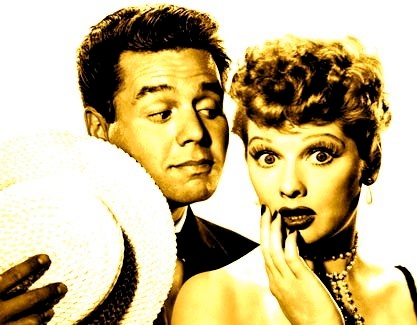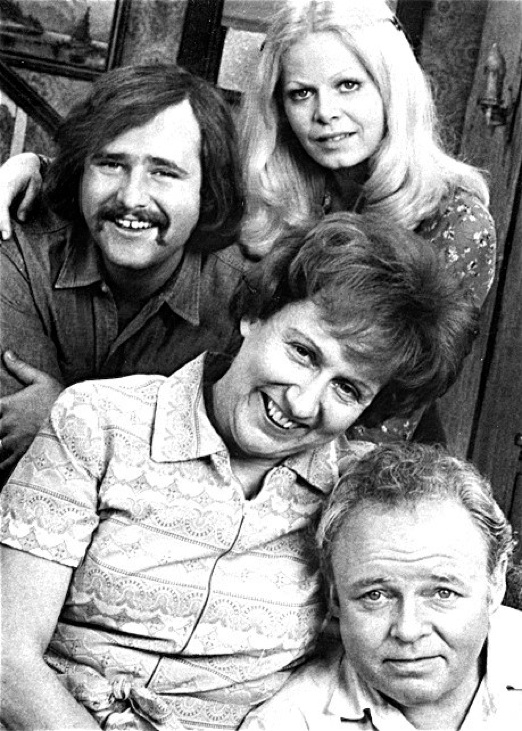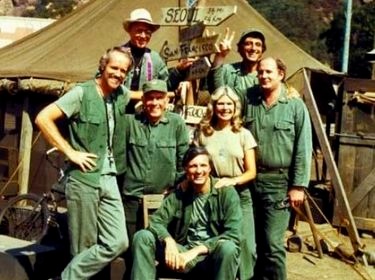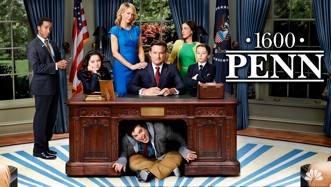I Love Sitcoms!
I am an unabashed fan of situation comedies, aka sitcoms. I love humor; I love to laugh; I love to escape the harsh realities of this world; I love sitcoms! I don't usually brag about this due to the perception that sitcoms represent mindless TV at its worst, an entertainment venue best suited for the non-intellectual. (Have you seen reality TV??)
However, I feel it is time to come to the defense of this much-maligned genre. I'm not defending ALL sitcoms, because some of them are very poor, but there are many examples of quality shows that touch our hearts as well as our funny bones.


The sitcom has seen many changes since the 50's. Besides the obvious advances in technology (“Brought to you in Living Color!”), changes in censorship have reflected the evolution of our society. Lucy and Ricky had to sleep in twin beds. Mary Tyler Moore raised eyebrows on The Dick Van Dyke Show by wearing slacks. The Mary Tyler Moore show was originally going to be about a single, divorcee making it on her own, but producers didn't want the public to think Mary (aka Laura Petri) had divorced Robert Petri, so her character was changed to single, never married. The list of taboo topics has changed dramatically over the years, but more about that later.
What, you may ask, are the key elements in a good sitcom? I suspect they are basically the same for any show - good writing combined with talented actors, resulting in character development that causes a connection with the viewer. A good situational comedy is much more than a series of jokes and gags. Just as most drama shows have occasional moments of levity, most comedies have a serious side as well.

Some of my all time favorite sitcoms have been (by decade) 50's: I Love Lucy; 60's: The Andy Griffith Show, Bewitched, The Dick Van Dyke Show; 70's: All In The Family, M*A*S*H, Mary Tyler Moore, Taxi, Mork and Mindy; 80's: The Cosby Show, Cheers, Golden Girls, Designing Women; 90's: Seinfield, Friends, Frasier, and Home Improvement. Of the current long-running shows, I prefer: Modern Family, The Big Bang Theory, The Office, 30 Rock (just concluded), Parks and Recreation, Two and a Half Men, and Hot in Cleveland. I'm also growing fond of some of the new arrivals: 1600 Penn, Last Man Standing, The Neighbors, The New Normal, Mike and Molly, and Whitney. Thanks to the amazing world of the DVR, I have the freedom to record these shows and view them at my convenience, skipping commercials while I watch.

To enjoy watching any major character (no pun intended), I think it is important to like the character, or at least you have to like disliking him (as a villain or a no-good). Unfortunately, Frank Burns was the one character I never liked. He had no socially redeeming qualities; I couldn't even enjoy disliking him. I was so glad to see that sniveling, sorry excuse for a human being leave the show I rejoiced at the introduction of Maj. Charles Emerson Winchester, III. Charles, as it turned out, was a pompous, egotistical surgeon from Boston who thought himself far above the station of a Mobile Army Surgical Hospital doctor. In spite of his obvious character flaws and the ensuing antics by his tent-mates, Charles was also revealed to be a real human being with some redeeming qualities. For example, it was his family's tradition at Christmas to make an anonymous donation to a local orphanage. This made for a very touching Christmas episode. In another episode he showed true compassion for a soldier who stuttered. The closing scene revealed that Charles' sister struggled with the same affliction. I liked Charles when he was good, and I enjoyed disliking him when he chose to act better than everyone else.
The other characters held up well over the years: Hawkeye, Father Mulcahy, and nurse Maj. Margaret Houlihan. I especially enjoyed watching Margaret evolve from a ridiculous Frank Burns admirer in the beginning to a character of great strength and depth at the end. She showed real vulnerability in the episodes where she tried to live up to the high expectations of her father, the General.
If I try to name the funniest moment I've experienced in my 5+ decades of watching sitcoms, my mind goes blank because there have been far too many to consider. Plus, the detail needed to describe such a moment would probably prove tedious and ineffective in essay form. However, I would like to share a tender moment that I feel epitomizes the quality that I appreciate about good sitcoms.

I'm an emotional sap, and, perhaps, easily entertained, but I cherish the tender moments on these shows as much as the laughs. I love sitcoms!
enough





